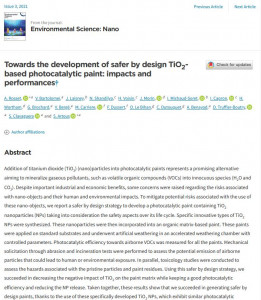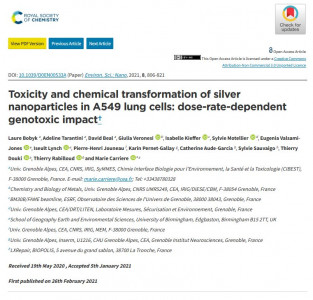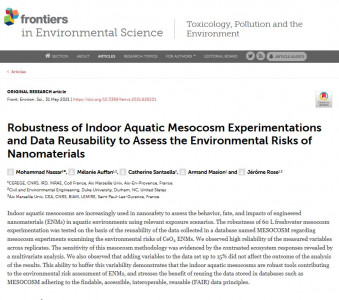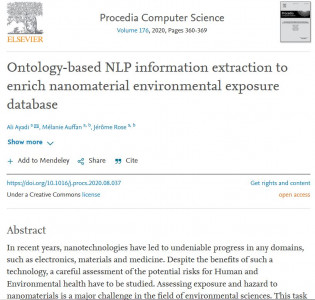This project aims at developing an innovative process that can be incorporated to pre-existing treatment plants to efficiently remove or degrade micro-pollutants from waste waters. The envisioned strategy will be based on two complementary processes enabled by the use of a nanostructured active material : (i) high specific surface area and reactivity will favor pollutant sorption and removal, and (ii) enzyme grafting on the nanostructured material will enable the pollutant degradation.
Postdoctoral position – 18 months
Starting date : Ideally March 1st 2016
Supervision : Clément Levard, Jérôme Labille, Corine Chanéac
Lab : CEREGE (Aix-en-provence) with few days at UPMC for specific experiments (Paris)
Funding agency : ANR POLPHARMA 2016-2018,
Project consortium : BRGM Orléans, CEREGE Aix en Provence, IPMCP Paris, SUEZ CIRSEE Le Pecq, IEM Montpellier and Solvay
Context :
France is the world's 4th largest consumer of medicinal drugs and the 1st in Europe. Over 3,000 human and 300 veterinary drugs are currently available on the French market. When consumed, 10 to 90% of these drugs are metabolized. A significant quantity of the active ingredients is therefore excreted, mainly with urine and feces, and collected in urban sewer systems or discharged directly to the environment by livestock. One way or the other, 70% of ingested antibiotics end up in the environment pointing out the inefficiency of conventional water treatment processes to remove micro-pollutant. Many studies have confirmed the presence of a large number of medicinal substances in all compartments – surface water, soil, sediments, groundwater, etc.
Aim of the Project :
In this context, this project aims at developing an innovative process that can be incorporated to pre-existing treatment plants to efficiently remove or degrade micro-pollutants from waste waters. The envisioned strategy will be based on two complementary processes enabled by the use of a nanostructured active material : (i) high specific surface area and reactivity will favor pollutant sorption and removal, and (ii) enzyme grafting on the nanostructured material will enable the pollutant degradation.
More specifically, the postdoc position will be devoted to the synthesis and characterization of pillared clays that will be used as the nanostructured sorbent. Pillared clays will be synthesized using sodium montmorillonite and different pillars. Nano-maghemites provided by UPMC and silica of variable sizes provided by Solvay will be used to vary the porosity and intrinsic reactivity of the material. Grafting of the enzymes will be performed by another partner of the project (J. Sanchez-Marcano, IEM Montpellier). The structural characterization of the obtained pillared clays will be realized using small angle X-ray scattering, X-ray diffraction and electron microscopy under cryogenic mode. The reactivity and selectivity of the material will be studied in a synthetic aqueous system of controlled composition, in which a recalcitrant antibiotic analogue will be used for adsorption isotherm experiments.
After a detailed characterization of both the structure and the reactivity of the pillared clays, the best matching materials will be provided to other partners of the project to test its efficiency at the pilot scale.
Required skills
A good knowledge of water physico-chemistry and of surface science (aggregation processes, functionalization) is required as well as some knowledge on characterization tools that will be used in the project such as electron microscopy, Small angle X-ray Scattering, Dynamic light Scattering… Finally, recommendation letters are strongly recommended.
Contact : Clément Levard
CEREGE (Centre Européen de Recherche et d'Enseignement des Géosciences de l'Environnement), Chargé de recherche CNRS
Europôle de l'Arbois
BP80
13545 Aix-en-Provence CEDEX 4
Ph : +33 442971539
Fax : +33 442971559









